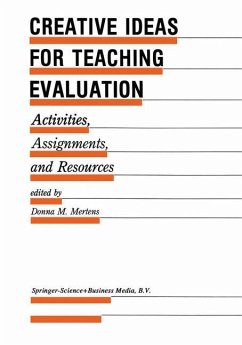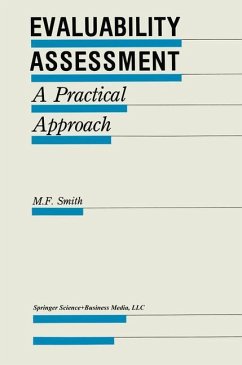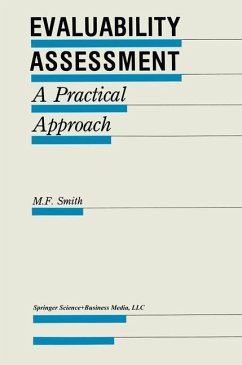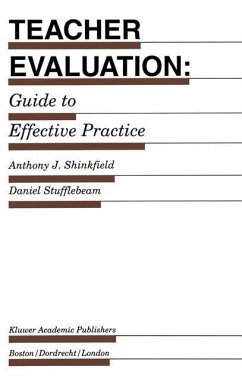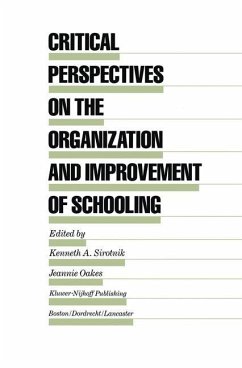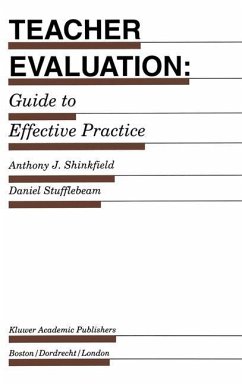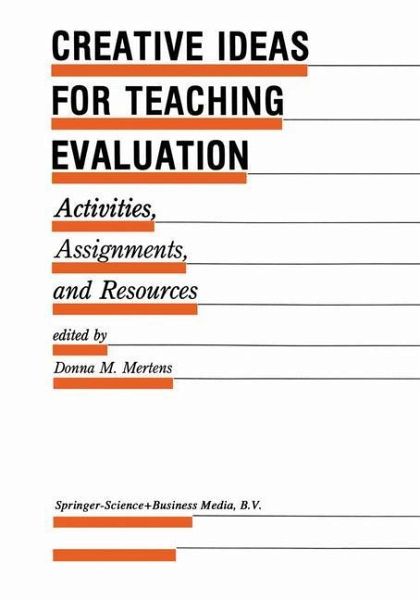
Creative Ideas For Teaching Evaluation
Activities, Assignments and Resources
Herausgegeben von Mertens, Donna M.
Versandkostenfrei!
Versandfertig in 1-2 Wochen
115,99 €
inkl. MwSt.

PAYBACK Punkte
58 °P sammeln!
In 1976, the first session on the teaching of evaluation was held at an annual meeting of evaluators. A few hardy souls gathered to exchange ideas on improving the teaching of evaluation. At subsequent annual meetings, these informal sessions attracted more and more participants, eager to talk about common teaching interests and to exchange reading lists, syllabuses, assignments, and paper topics. The ses sions were irreverent, innovative, lively, and unpredictable. Eventually the group for malized itself with the American Evaluation Association as the Topical Interest Group in the Teaching of...
In 1976, the first session on the teaching of evaluation was held at an annual meeting of evaluators. A few hardy souls gathered to exchange ideas on improving the teaching of evaluation. At subsequent annual meetings, these informal sessions attracted more and more participants, eager to talk about common teaching interests and to exchange reading lists, syllabuses, assignments, and paper topics. The ses sions were irreverent, innovative, lively, and unpredictable. Eventually the group for malized itself with the American Evaluation Association as the Topical Interest Group in the Teaching of Evaluation (TIG: TOE). As word of TIG: TOE's activities spread, instructors from all over the country clamored for assistance and advice. It became apparent that a handbook was need ed, a practical interdisciplinary guide to the teaching of evaluation. Donna M. Mertens, a long-standing member of TIG: TOE and an accomplished teacher of evaluation, volunteered to edit the book, and her skills, sensitivity, and experience in the craft of teaching are apparent throughout.





